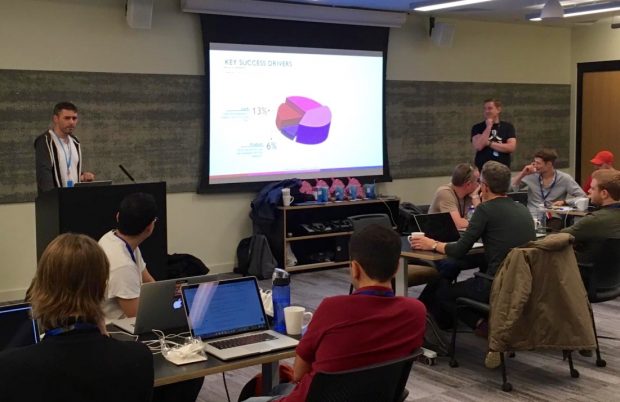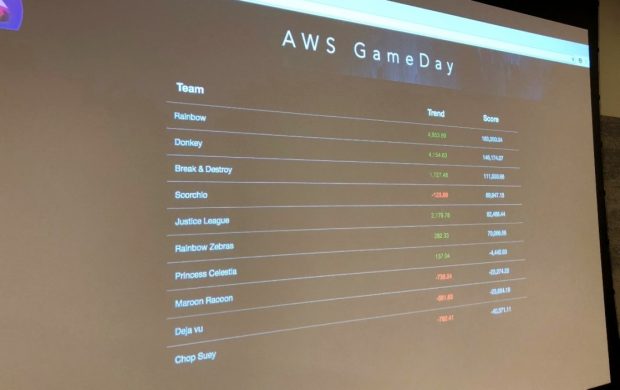
At DWP Digital, we’re using public cloud-based services to support our hosting strategy in line with Government Digital Service’s (GDS) Cloud First Policy.
As a team, we’re always looking to expand our large-scale cloud capability and develop our skills. We do this by attending a wide range of events and developing our learning on programs such as Docker and Kubernetes.
One of the most recent events we attended was an interactive, cross-government ‘game day’ in London hosted by a number of cloud market suppliers.
What are game days?
In a similar way to hackathons, game days are designed to provide participants with a hands-on, scenario-based learning experience. Attendees are tasked with running and operating live Amazon Web Services (AWS) resources.
Throughout the day, teams win points and face challenges ranging from configuration errors, traffic growth and threats that impact platform performance, which you have to adapt to and work around. The goal for each team during a game day event is to keep the infrastructure online, secure and optimise it using the services AWS has to offer.
Game days help bring individual unique skills and expertise to the table while learning about AWS best practices, new AWS services and AWS architecture patterns in a risk-free environment. The challenges teams face mirror those that you might expect in a real-world environment. They really keep you on your toes to find creative solutions and become inventive with problem solving.
Collaborating to take on a virtual challenge
On the day, we formed into 10 cross-government teams across 6 public sector departments and organisations including HM Revenue & Customs, Ministry of Justice, the Government Digital Service, the Met Office and the Financial Conduct Authority.
Each team took on a challenge to resolve a fictional company’s infrastructure issues. We competed against each other to accumulate points and the event was scored by the opportunity cost of running the infrastructure against orders processed.
The morning was spent trying to resolve an ‘S3 bucket issue’. These buckets are used to store data related to orders and it was our task to retrieve data from a missing bucket. After thorough investigation and reaching multiple dead-ends, we decided to switch off the infrastructure as it was costing money to run a system that was unable to produce orders. This tactical decision was the right one, because the missing bucket had actually been deleted. It was a good example of a situation where asking the right questions and involving your stakeholders can help remove obstacles.

Next, we moved on to exercises to change the application front end and increase the amount of orders to understand if the system could withstand higher loads.
One of the exercises involved scaling an application which took 4 seconds to process each request. The application was bundled up in binary code. Frustratingly after multiple approaches we found ourselves at a dead end. One of the teams decompiled the application, taking it back to the source code which they were able to change. The efficiency of the application was dramatically increased, resulting in a negligible 100 milliseconds processing time for each request!
Thinking laterally and failing fast are key
We really enjoyed the game day. It was good fun using our technical skills and getting the chance to gain experience with AWS CloudFront, Amazon’s global Content Delivery Network, because this helped grow our capability in a safe environment.
But interestingly the main learning for us was not the technical management of infrastructure. Instead, the time taken to organize the team and establish collaborative ways of working proved equally pivotal. If we jumped into a task to without agreeing who was doing what, it wasn’t the right way to deliver the best results.
The main key to success during the game day lay in creatively developing solutions and thinking about how to apply new ideas. Experimenting by deviating from the standard ways of doing things helped us use the applications more efficiently and have some fun at the same time.
There were definitely frustrations that emerged if we couldn’t find a solution and reached a dead end. Although it’s uncomfortable to fail, it taught us that failing fast is a painful but necessary part of creative problem solving. It ultimately helps us reach better digital outcomes.
Roll on the next game day event!
Like this blog? Why not subscribe for more blogs like this? Sign up for email updates whenever new content is posted!
